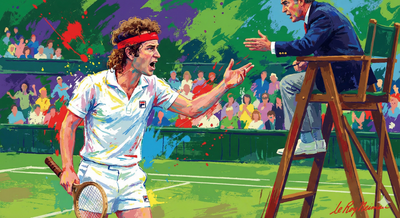
My wife works a corporate job, so as the parent with the more flexible schedule, I'm the primary driver for my daughter's activities. Between drop-offs and pickups for school, lessons, sports, and activities, there are lots of pockets of time where I'm waiting around for Madeleine. These 20-25 minutes are the new chasm. It’s just enough time to fall into the infinite scroll, but never enough to start anything of consequence. These fleeting spaces are where my best intentions flutter away.
Like many friends, I'm trying to read books again, hoping to fill in these spaces with slower consumption. It's hard to concentrate, because my brain has been re-wired, a hostage to the dopamine hit-and-run of short-form content—comedy, tragedy, or just manufactured outrage. But I'm trying.
Rover as a reading companion
Recently, while waiting for Madeleine to finish her math lessons, I started to re-read The Dharma Bums, by Jack Kerouac. It was my favorite book in college, and now, I wanted to see how I've changed, if I still resonated with the freedom in those pages. It was strange, sitting in the car, under a San Francisco sky turning gold, reading about Ray Smith's experiences in the Bay Area in the 1950s:
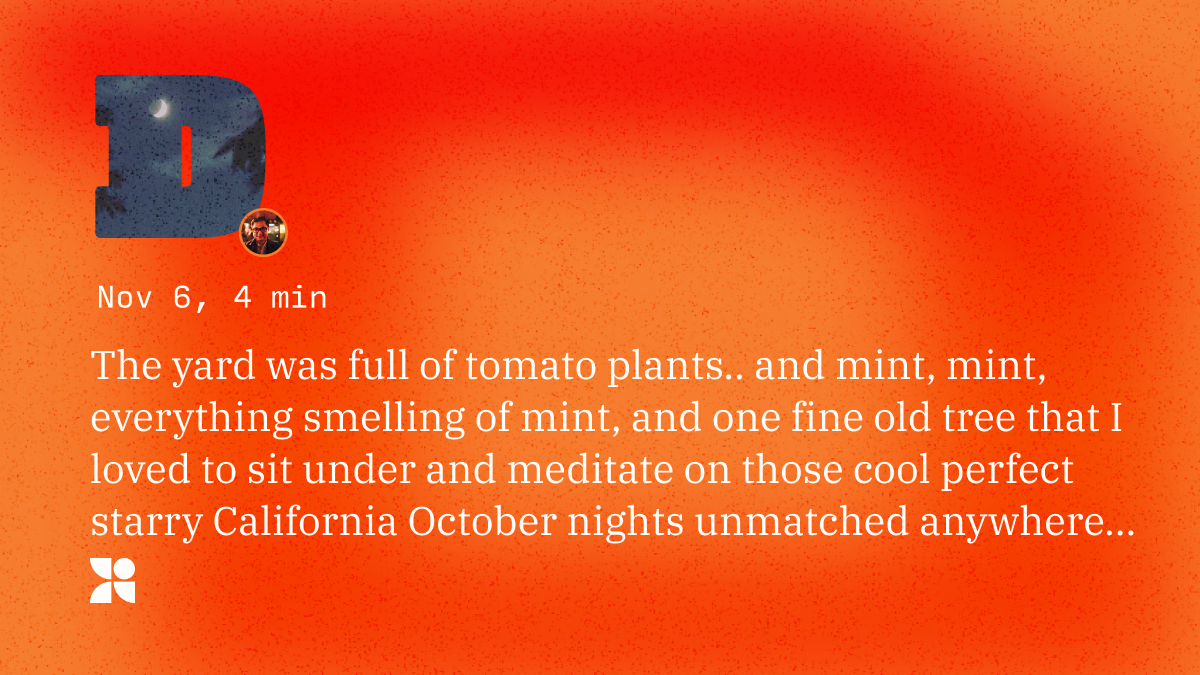
Then, I felt it. My mind was distracted. The temptation was visceral: ditch the book for a scroll on the socials. It was a familiar pull, this algorithmic quicksand to sink my best intentions.
But I had Rover. I asked Rover to unpack The Dharma Bums, to give me a hook so I can feel my way into the book. Within minutes, Rover returned not a summary, but a philosophical framework: The Duality of Connection and Isolation. It was a structure to lean against, a lighthouse in a storm of micro-distractions.
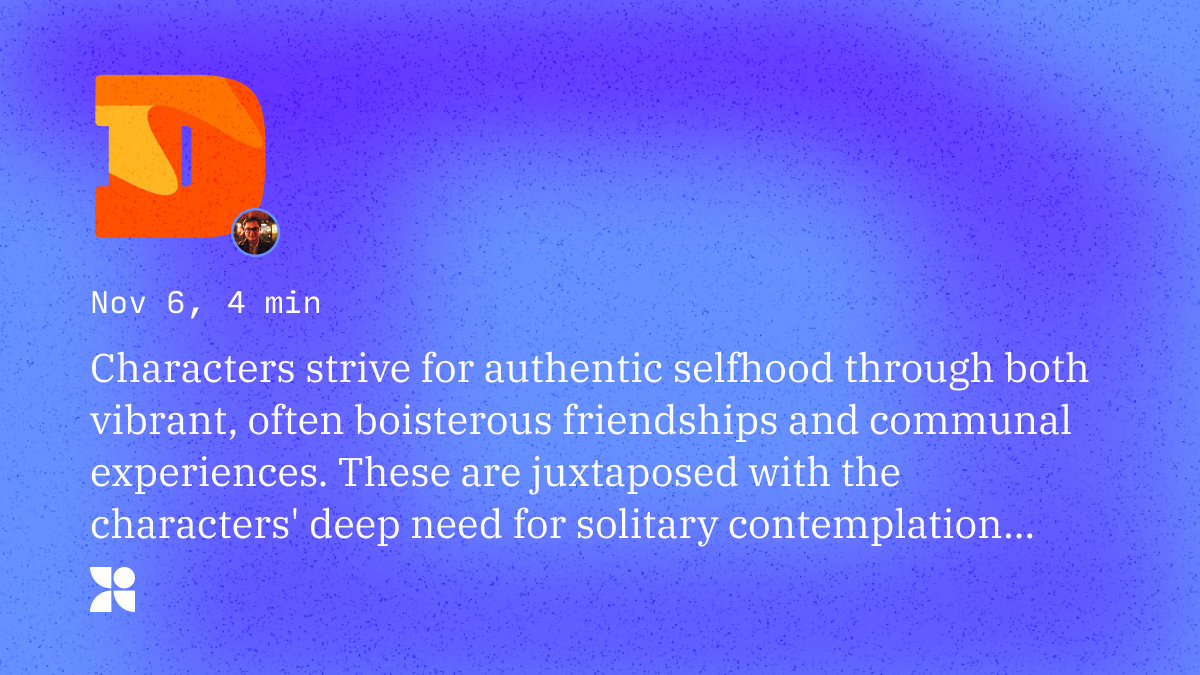
Armed with insights from Rover, I picked the book up again and read a few more chapters. My brain settled into a steady rhythm. I passed the test.

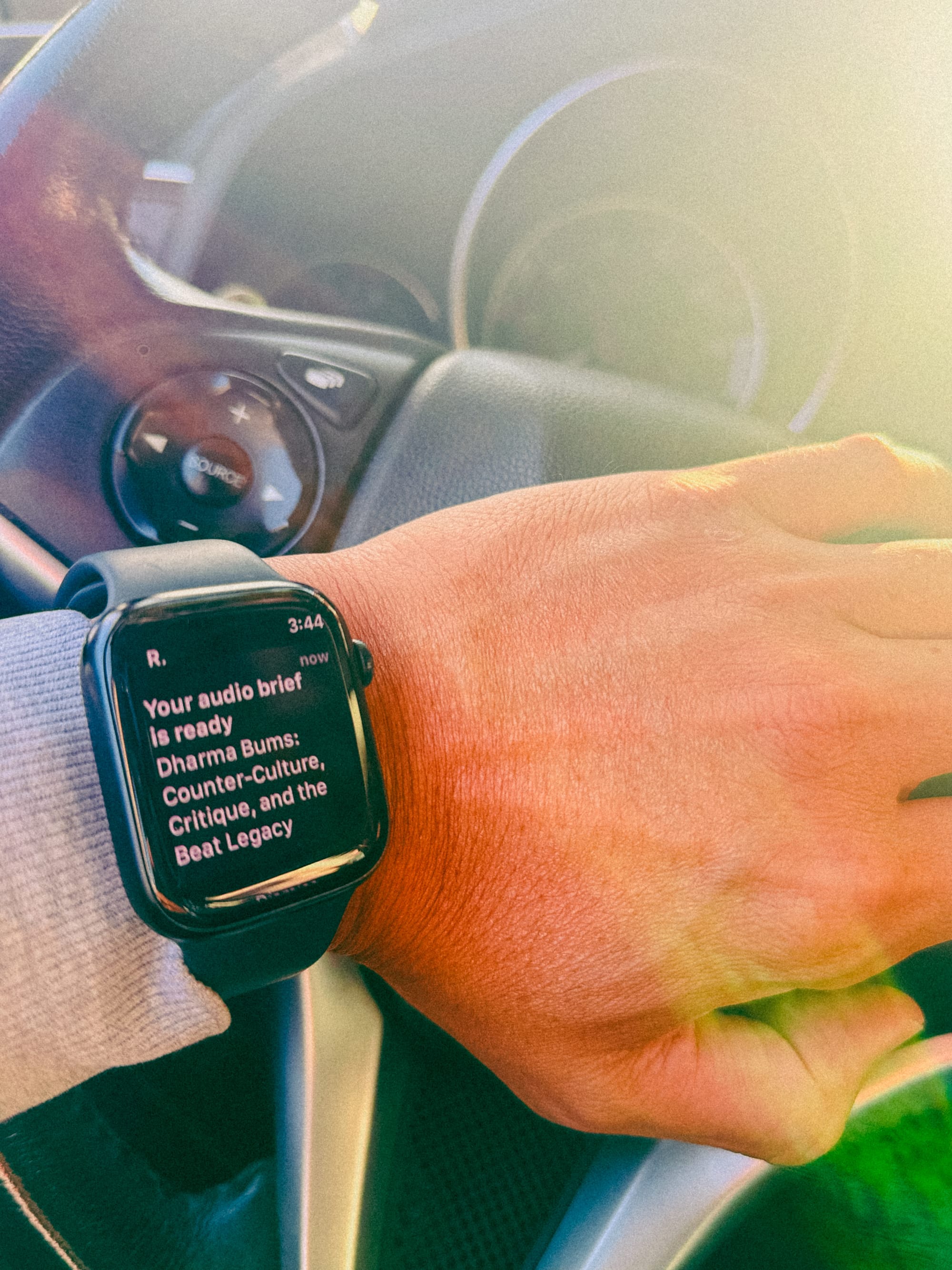
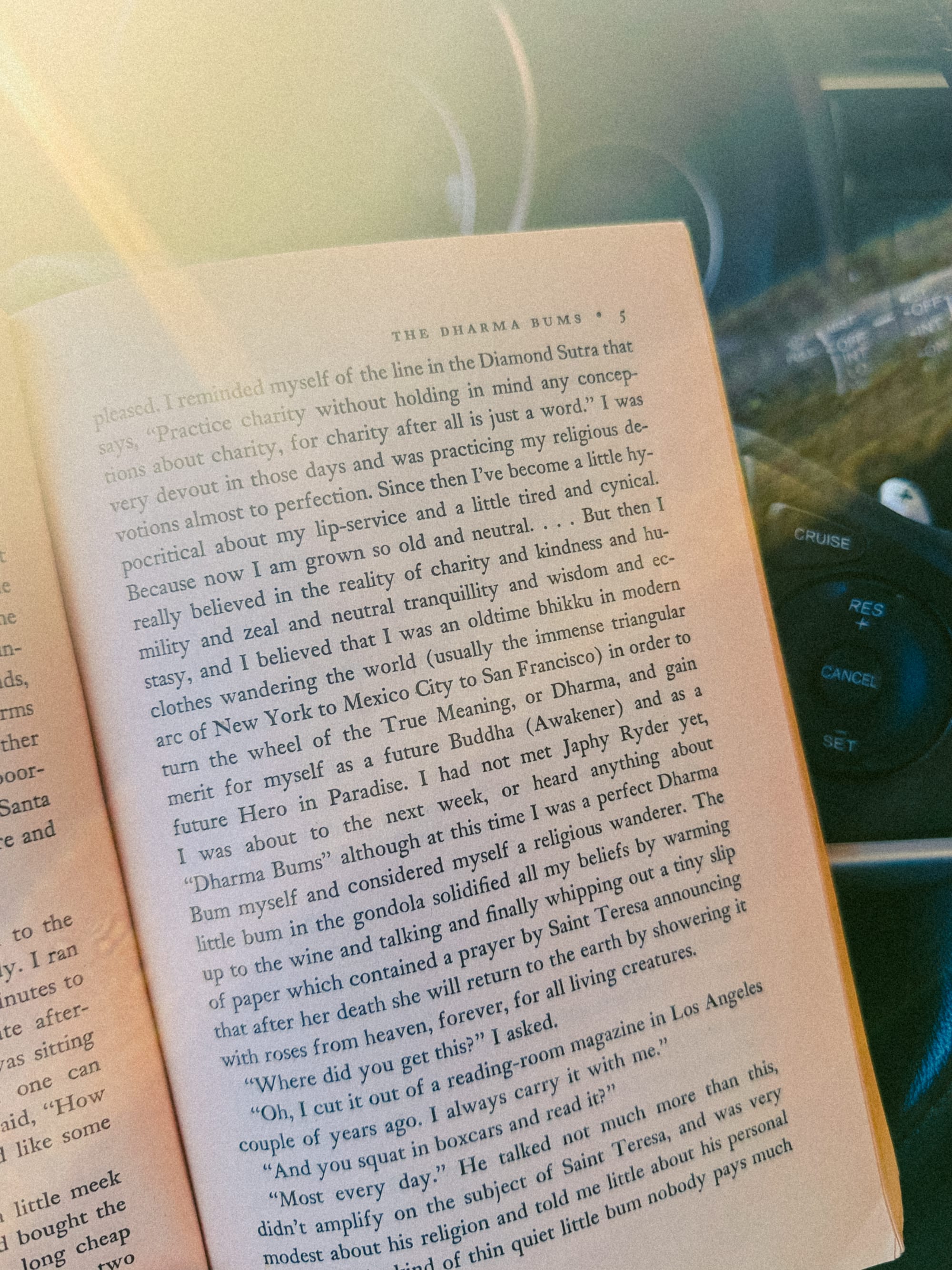
Rover's problem space
From this episode, I was excited to see how Rover is manifesting some core product principles. We started building Rover as a response to many of the problems we heard as friends and colleagues tackle their day, taking in news, hearsay, and a firehose of content online. We came away from these conversations hearing a few pain points over and over .–We felt them ourselves, too.
The conversations we had pointed to the same systemic breakdown: an ecosystem that optimized for quantity over utility, driving digital exhaustion. Some folks try to come up with coping strategies. Other unplug. But practically all of us are swimming in these toxic waters.
Rover's product principles
When we set out to build a new social space, our stance is simple: We refuse to design another infinite feed. We will not build a system optimized to trigger outrage or reward infantile entertainment. Rover is built to be an alternative space where joyful encounter is possible.
There are several key principles that can support this kind of space:
Active consumption. We are investing in audio, because the spoken word demands a more focused, active attention than the flat, distracting mediums we've become accustomed to. As John noted,
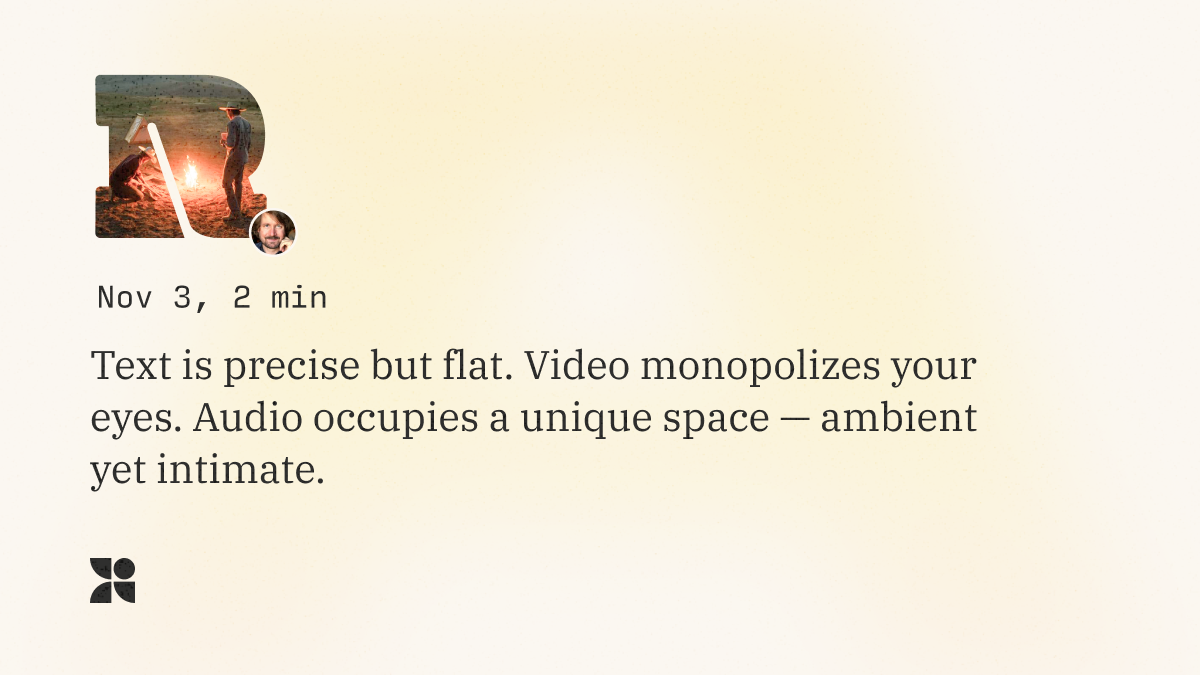
In this fractured-attention landscape, listening to a few minutes of audio is one of the last refuges where my brain can focus and engage with the material actively.
Meaningful time spent. Rover is designed to eliminate empty mental calories. Instead of feeling like time was wasted, our users should experience a definitive return on time investment, leaving them energized with actionable insights.
IRL matters: After getting information about The Dharma Bums, I was excited to go back to reading. Exiting is just as important as entering Rover. Rover didn't hook me with more things to do in the app. Will there be an infinite scroll feed on Rover? We're trying our hardest to design something different.
And Rover helping me focus on reading had knock-on effects. There was a passage at the beginning of the book that stood out to me:
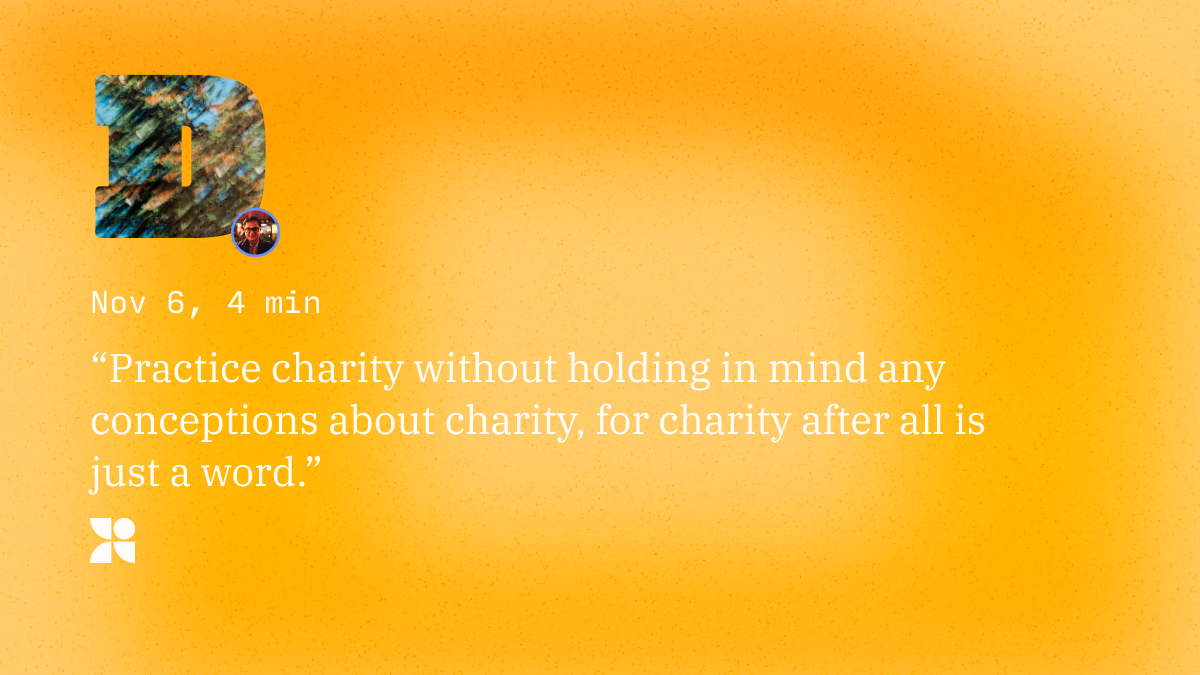
This observation enabled me, over the next several days, to initiate richer conversations with family, friends, and even strangers about San Francisco, affordability, and my own role. These conversations happened because Rover guided me back to ideas that stuck.
Where to go from here
I'm excited about where all of this is going. We're starting off with the kernel - the idea that an audio brief can mean so much more. Every week, we're validating and discovering new ways that we can build on top of these key principles. The hope is that there's a new space where thoughtful folks can gather, share ideas, and get insights in return. The core thesis we are holding close is that this new space has more in common with campfires rather than town squares. Something more intimate, calmer, and joyful. More attuned to our desires for shared resonance.
That's the foundation of Rover and our hope for a more thoughtful future.
Subscribe for the latest updates.





